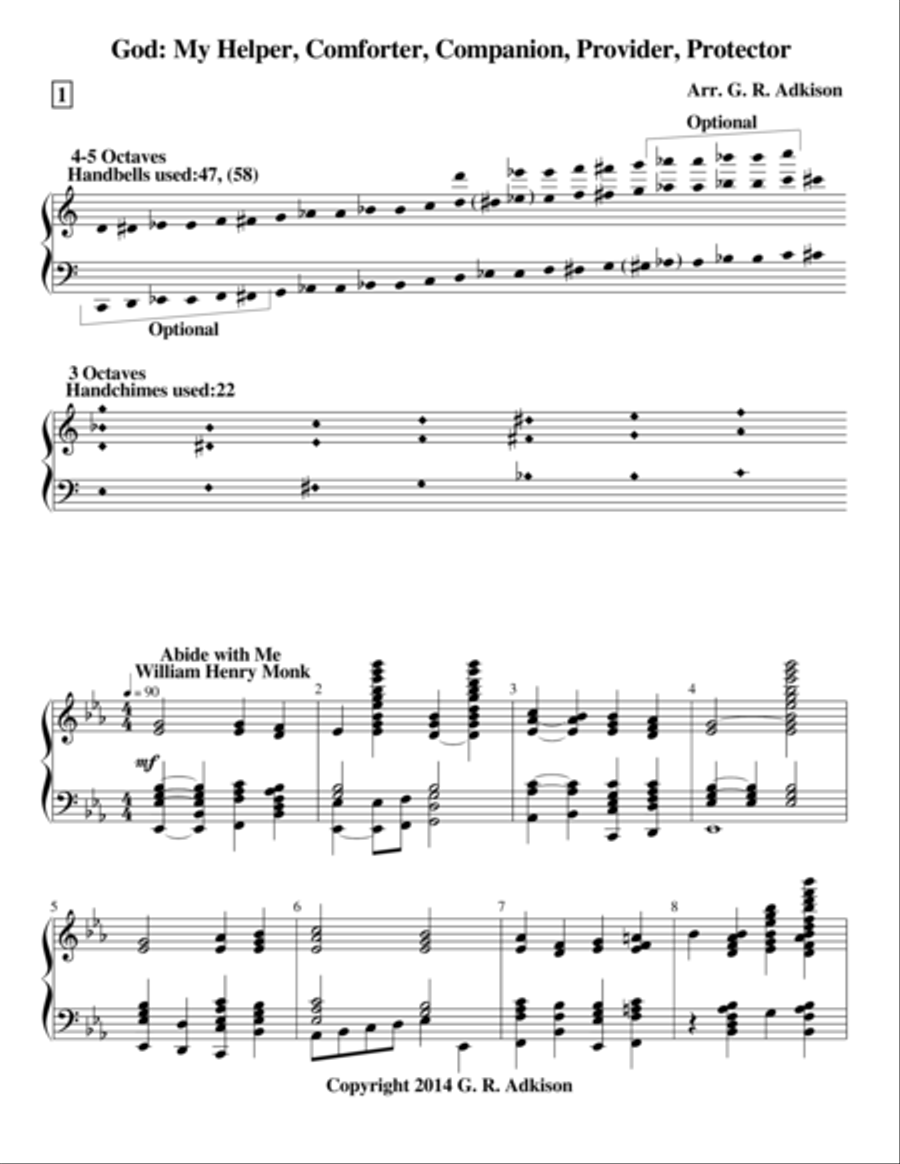Handbell - Level 3 - Digital Download SKU: A0.953732 Composed by Oscar Ahnfelt and Charles H. Gabriel, Walter Stillman Martin, and William Henry Monk. Arranged by G. R. Adkison. Christian,Sacred. Score. 6 pages. Gary Ray Adkison #15171. Published by Gary Ray Adkison (A0.953732). God: My Helper, Comforter, Companion, Provider, Protector is a 71 measure arrangement for 4-5 octave handbell choir, and OPTIONAL 3 octaves of handchimes. It is a medley of Christian hymns that deal with some of the attributes of God, as they relate to His followers. Specifically, it includes Abide with Me, God Will Take Care of You, Day by Day and Just When I Need Him Most. It is probably a level 3+ arrangement. The God Will Take Care of You section starts with a duet in the handchimes, with the melody line switching from treble clef to bass clef, in the verse. Of course, handbells can be used instead of handchimes, if desired. In the chorus, martellato is used in the bass clef, while there is a descant going on in the high treble clef, with the melody sandwiched in between. In the last section (Just When I Need Him Most) interesting chords, bass runs and melody line doubling, with chords filled in between the doubled melody notes, build to an ending culminating in a repeat of the last musical phrase, at a slower, more majestic tempo. The first 3 selections are more laid-back; the last is presented in a more energetic fashion.
